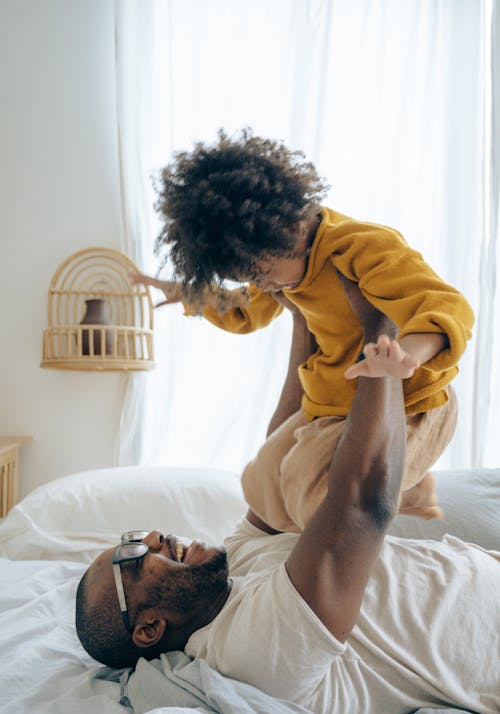Firstly, know that you are not alone in this struggle. Bedtime is universally acknowledged as the battleground of all parents and children. But don’t give up!
While there is no quick-fix solution, a lot of what works is creating a routine. Children crave routine and normality, especially in times like this. Their daily rituals have all been completely thrown off now that they are learning from home, so don’t forget it’s not just you who has been disrupted.

If they are acting out or having trouble calming down before bed, here’s a few tips and tricks to try to ease them into a routine that suits them and creates an atmosphere of calm, instead of stress, around bedtime.
Set sleep and waking times.

If your child’s routine is all over the place, that’s probably one of the bigger factors in the bedtime battle. Children need 9 to 10 hours of sleep a night, so setting a bedtime is really counting back from when they need to be awake. If that’s 7.30 in your house, then your child needs to be fully asleep by at least 10.30. Which means the sleep routine needs to be happening well before then.
Regulating your body is the first step to getting a good night’s rest. If your children’s bedtime is a little all over the place right now, you’re not alone. But it is essential that the body and brain begin to expect a shut-down and wake-up call at the same time every day. The body and brain will naturally begin to acclimatise to this over time.
Creating a Sleep routine

This is arguably one of the most important parts of the bedtime process. Creating a calming, optimum sleep environment will do half the work in helping your little one to drift off. The number one thing is to try to limit screens – all screens – before bed. Getting too much blue light at the wrong time – a that is light literally designed to wake you up – can ruin the chances of drifting off naturally. Even something like watching a movie or reading from a Kindle, that seems relaxing is actually stimulating their brains.
Try reading a book with them before bed, or else setting up a calming meditation video to do before sleep – they’re never too young to start being mindful! Other tips and tricks are practising breathing exercises with them – breathe in for 4, hold for 6, breathe out for 8 – or try out some soothing sleep sprays, that scents that promote sleep like lavender, rose and jasmine, which are all calming aromas. What is important is that it is routine, and it calms them.
They aren’t getting enough exercise or fresh air.

Learning from home is having a lot of benefits for a lot of people – family dinners are easier, we’re more involved in and informed of our child’s learning. One downfall, however? The kids are less likely to get out for their usual breaktime run around, which ensures they are getting their daily dose of blue sky. This outdoor break is essential to regulating their body clocks (part of the fixed sleep and waking times routine) and burning off excess energy.
Now that they’re inside most of the day with the cold weather and their school is replaced with a screen, the artificial lighting disorients their body’s natural rhythm. Try getting them out, even just for a twenty-minute run around during the lunch hour and see what difference it makes to their mindsets once they return. It will help keep you alert in the afternoon too!
Your family is eating a large or carb/sugar heavy meal too close to bedtime

We get it. Family mealtimes can be hard to pull together, especially when it’s harder to switch off from work than ever. It’s handier to chuck something quick into the oven when you’ve had to work late, and that’s so fair, we’ve all been there. But consistent diets of sugar, caffeine and carbs, especially when consumed too close to bedtime can be detrimental to a good night’s sleep.
Suddenly all of this food has been converted into energy with nowhere to go for the night. Spikes in giddiness, acting out, racing around and refusing to get into pyjamas are just some of the ways kids will deal with this energy excess. Their body looks for some way to blow off this steam and can give them a broken or total lack of sleep as a result. Eating smaller amounts earlier will mean their stomach and energy levels will be settled by bedtime.








